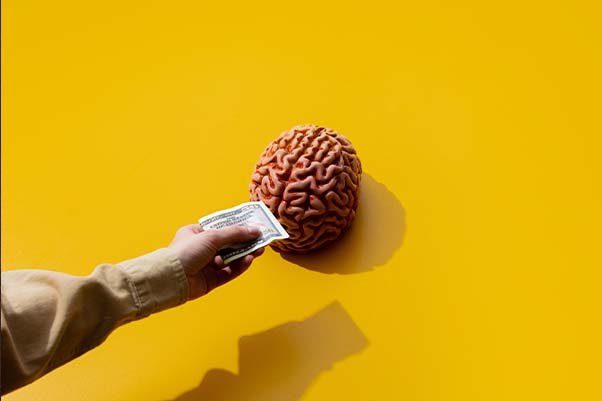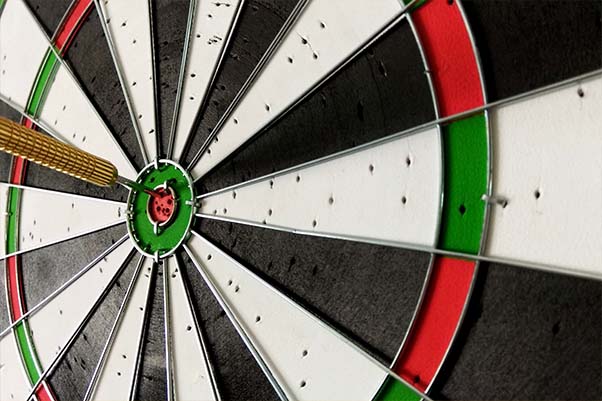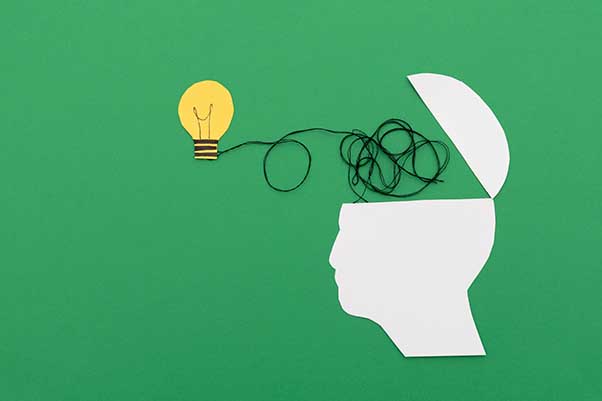Otak Anda Disambungkan untuk Terjebak
Panduan ini akan membantu anda memahami masalah ketagihan perjudian dalam talian dengan mendedahkan beberapa pencetus penting yang berisiko menyebabkan ketagihan perjudian dan memberi anda cadangan berguna tentang cara menangani corak tersebut dan menjadikan diri anda lebih selamat daripada tingkah laku melulu.
Keseluruhan pengalaman perjudian dalam talian dicipta untuk menjadi sangat menarik. Lampu berkelip terang, hampir menang, kemenangan pantas. Semua ini dan banyak lagi direka dengan tujuan khusus di belakangnya. Ganjaran dan keseronokan yang diperoleh daripada perjudian dalam talian bergantung pada laluan yang sama dalam otak anda yang memberi perhatian kepada makanan, dadah, dan juga media sosial.

Peranan Dopamin dalam Ketagihan Perjudian
Dopamine dikeluarkan apabila kita berasa gembira. Ia memainkan peranan penting untuk lebih daripada sekadar mood yang baik; sebenarnya, ia merangsang setiap kali anda memutar gulungan atau membuat keputusan untuk bertaruh. Proses ini mewujudkan keseronokan dan keseronokan yang membantu sebagai motivasi untuk mengulangi proses tersebut lagi dan lagi. Tetapi dalam perjudian dalam talian, perkara boleh menjadi tidak terkawal apabila sistem ganjaran semakin digunakan.
Mari kita terokai cara dopamin mempengaruhi ketagihan kepada perjudian:
• Setiap kemenangan kecil menghasilkan lonjakan dopamin.
• Kehadiran nyaris menipu otak anda untuk berfikir bahawa kemenangan besar sudah hampir, menyemarakkan lagi permainan.
• Ketidakpastian kemenangan membuatkan otak anda semakin mengidam.
Otak anda berusaha untuk Toleransi menyebabkan peluang yang lebih rendah untuk mencapai tahap minimum yang menambahkan keseronokan yang lebih besar membantu dengan percubaan minimum dan bukannya pengeluaran yang diperlukan pada mulanya kemudian digandakan.

Jadual Ganjaran Rawak Yang Memikat Otak Anda
Kasino dalam talian melaksanakan sesuatu yang dipanggil pengukuhan nisbah pembolehubah. Dalam istilah yang lebih mudah, ganjaran diberikan dengan segera dan bukannya pada masa yang ditetapkan. Ini adalah bentuk pelaziman yang paling berkuasa yang diketahui oleh psikologi.
Contohnya termasuk:
• Menang selepas 5 putaran, kemudian selepas 20 putaran, dan sekali lagi selepas 2 putaran.
• Tiada cara untuk menjangkakan bila kemenangan anda yang seterusnya.
• Fikiran anda kekal fokus pada permainan kerana ada harapan bahawa setiap pusingan boleh menguntungkan.
Ketidakpastian ini mewujudkan corak di mana pemain mengejar potensi kemenangan walaupun selepas banyak kekalahan kerana percubaan seterusnya mungkin hanya membuka kunci "yang besar."

Kuasa Nyaris Rindu
Perjudian dalam talian adalah antara unsur yang paling mengancam. Anda berada selangkah lagi daripada simbol jackpot dan simbol ketiga muncul "hampir" serta-merta. Ini terasa seperti serangan dopamin yang besar seolah-olah anda benar-benar menang.
Sebab kejadian nyaris bekerja dengan berkesan termasuk:
• Mereka mewujudkan persepsi bahawa kejayaan sudah hampir.
• Mereka membawa kepada penyertaan berterusan di bawah tanggapan bahawa pencapaian "hanya satu putaran" lagi.
• Keazaman lebih daripada putus asa dicetuskan sebenarnya perasaan kecewa.

Ilusi Kawalan
Orang yang berjudi dalam talian cenderung menganggap mereka mempunyai pengaruh terhadap keputusan. Tanggapan salah ini memberikan pemain rasa keyakinan palsu.
Contoh ilusi kawalan dalam perjudian:
• Rasa seperti anda boleh "merasakan" apabila mesin slot perlu dibayar.
• Percaya bahawa beberapa ritual pertaruhan meningkatkan peluang anda.
• Menukar amaun yang dipertaruhkan berdasarkan kemenangan atau kekalahan baru-baru ini, walaupun setiap putaran adalah rawak.
Penipuan diri ini membantu mengekalkan penglibatan emosi berbanding permainan yang membolehkan pelaburan yang lebih besar dalam masa dan wang.

Peranan Pelarian Emosi
Perjudian dalam talian menawarkan lebih daripada hiburan. Bagi kebanyakan orang, ia menjadi cara untuk melarikan diri dari tekanan, kebosanan atau emosi negatif.
Pencetus emosi yang membawa kepada perjudian termasuk:
• Menggunakan perjudian untuk mengelakkan kebimbangan kewangan.
• Bermain untuk mengalih perhatian daripada masalah perhubungan.
• Beralih ke kasino dalam talian selepas hari yang sukar di tempat kerja.
Kebergantungan emosi ini membina tabiat di mana perjudian menjadi mekanisme utama mengatasi, menjadikannya lebih sukar untuk dihentikan walaupun kerugian meningkat.

Kemajuan Ke Arah Toleransi dan Peningkatan
Bagi sesetengah orang, perjudian dalam talian mempunyai tujuan yang lebih besar daripada sekadar hiburan. Ia boleh menjadi cara untuk mengatasi tekanan, kebosanan atau perasaan yang tidak diingini.
Perjudian sebagai pelarian selalunya membawa kepada tingkah laku mengelak seperti:
• Menggunakan keinginan untuk bermain permainan untuk mengurangkan kebimbangan kewangan.
• Gangguan melalui beralih kepada perjudian untuk isu perhubungan.
• Kasino dalam talian selepas hari pejabat yang melelahkan mencadangkan ketagihan tanpa kawalan.
Sama ada kerugian tinggi atau rendah, di bawah senario sedemikian mengawal desakan menjadi semakin sukar disebabkan oleh pergantungan emosi dan sejarah lampau membentuk tingkah laku tindak balas lalai.

Cara Mengakali Otak Anda dan Kekal Terkawal
Kenali bahawa setiap putaran individu adalah rawak. Tiada sistem untuk diikuti. Tidak perlu mencari corak. Sentiasa tetapkan had masa yang ketat sebelum memulakan. Sesi pendek membantu mengehadkan pengumpulan tenaga emosi. Kawal pendedahan kewangan dengan had deposit dan kerugian. Tetapkan semula keadaan emosi anda dengan kerap berehat. Elakkan berjudi apabila letih, tertekan atau bersemangat emosi. Gunakan alat pengecualian diri atau bertenang jika anda berasa hilang kawalan. Ketahui tentang algoritma yang digunakan dalam perjudian dalam talian untuk memahaminya dengan lebih baik.

Kuasa Kesedaran Diri
Menyedari perangkap berasaskan otak ini adalah pertahanan pertama anda. Dengan memahami cara kasino dalam talian mencetuskan sistem ganjaran anda, anda boleh membina tabiat yang lebih kukuh yang mengekalkan kawalan anda.
Kesimpulan: Mengakali Pencetus Sebelum Mereka Mengakali Anda
Perjudian dalam talian boleh dianggap sebagai ketagihan kerana ia disesuaikan untuk merangsang sistem ganjaran otak anda. Melindungi diri anda daripada potensi kesan buruknya memerlukan lebih daripada sekadar kemahuan; ia menuntut memahami kerja dalaman otak anda.
Menjinakkan keinginan anda, menetapkan sempadan yang ditetapkan, dan menggunakan strategi yang sesuai membolehkan anda mengambil bahagian secara bebas dalam perjudian dalam talian sambil juga menjaga kesejahteraan mental dan kewangan anda.
















































